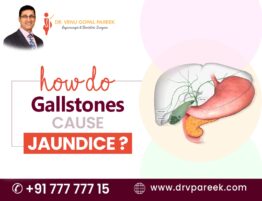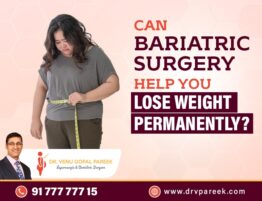
There are many reasons why you want to lose weight. If you have been overweight or obese for a long time, you might be worried about what being overweight can do for your health. Being overweight increases the risk of many health problems, including diabetes, non-alcoholic fatty liver disease, gallbladder disease and some cancers. If you gained weight recently, you might want to lose weight to fit your old dress again. Whatever your reason for losing weight, there are several essential strategies you need to know.
Most people who have thought about weight loss have tried many methods, but diet, exercise, and drugs for weight loss, provides success. These methods can often be successful in the short term, but the results rarely continue.
There are now several non-surgical interventions that offer better weight loss results without the need for surgery. These procedures are usually performed by your own but under doctors prescription.
If your efforts to lose weight fail and existing medical conditions are significant for weight loss, Dr Venu Gopal Pareek can develop non-operative care. Medications can help overcome obesity health problems while changing certain behaviours can play an essential role in weight loss.
This article can help you develop a behavioural inclusion plan that will help you change your eating habits and increase your level of activity and non-surgical treatment at Dr Venu Gopal Pareek.
Non-Surgical Medical Weight Loss Treatment:

Non-surgical weight loss should need taking into account your personal needs, your general health and your health condition and your weight loss goals. A doctor helps you towards long-term weight loss by making essential lifestyle changes through diet, exercise and advice.
- Lifestyle Changes exercise
- Non-surgical gastric balloon procedure
- Customized diet plans (including low-calorie meal replacement options)
Non-Surgical Gastric Balloon Procedure:
What Is A Gastric Balloon?

A gastric balloon, also known as an intragastric balloon, is a short-term, non-surgical weight loss aid. It is a soft silicone bladder that is temporarily inserted into your stomach to fill it partially so that you feel full faster after eating less food. It offers a weight loss solution that allows patients to start lifestyle changes. Sometimes it is used when the patient’s BMI is not high enough to warrant surgery.
How Does A Gastric Balloon Work?

Gastric balloons occupy a lot of stomach space, so you feel full early and have to eat less. If you eat less, you will lose weight. Does not help if you eat soft foods, sweets, or high-calorie liquids. It allows you to get used to smaller food portions and adopt a healthier lifestyle. Hopefully, if you remove the gastric balloon, you will continue your new lifestyle and diet. You must undergo a controlled gastric balloon diet and lifestyle changes as long as the balloon inserted and removed.
The advantage of a gastric balloon is that it offers a non-surgical reversible weight loss treatment that allows you to develop new eating habits in the long run. Weight loss can also decrease all health problems associated with obesity, such as type 2 diabetes.
What Happens During The Procedure?
- The gastric balloon procedure only takes 15 minutes. It is done on an outpatient basis under mild sedation or mild anaesthesia.
- A doctor inserts deflated gastric balloon through your mouth, oesophagus, and stomach, using a thin, flexible tube of light and a camera at the end called an endoscope.
- The balloon is then immediately filled with a sterile salt solution through a small filling tube (catheter) attached to the balloon. After six months, the gastric balloon is deflated and removed endoscopically when placed.
- There is a new type of gastric balloon called a stomach pill capsule. It just needs to swallows and expands with the help of gas through a thin tube attached to the balloon when it reaches your stomach. Gastric pill capsules do not need any sedated. It must also be removed after six months.
Follow-Up Care And Recovery:

-
- You can go home the same day as the gastric balloon procedure and resume normal daily activities without interruption.
- After inserting a gastric balloon, you need to take fluid within a few days. You will then switch to soft food and then to regular textured solid food.
- Your surgeon or weight loss nutritionist will discuss the changes and nutritional exercises you need to do to achieve and maintain your weight loss goals. You must follow this recommendation.
- When the balloon gets removed, your stomach returns to its original size. It is essential to proceed with a gastric balloon and a newly learned lifestyle diet to maintain weight loss. You should attend regular follow-up meetings with the doctor, including diet tips and planning.
Diet:

- Eat Properly:
- Choose fibre, not fat. Protein is essential for organ function and muscle formation. Choose lean beef if you eat red meat. Remove the skin from the chicken before cooking.
- Avoid fat diet like Bologna and salami. Choose lean turkey or roast beef instead.
- Vegetarians can provide a lot of protein from soybeans, beans, nuts and seeds. Lentils, beans and nuts are excellent sources of fibre and protein.
- Eat low-fat milk as a source of protein, including low-fat cheese and fat-free yoghurt.
- Eat more fresh fruits and vegetables:
- Fruits help satisfy your sweet tooth thanks to natural sugar, while fresh vegetables help fill your stomach faster. Fruits and vegetables contain fibre so you can feel full quickly. Try these tips for adding more fruits and vegetables to your diet:
- Eat what is in season and eat fruits and vegetables for breakfast or dessert. For example, if you eat apples in the fall or cherries in late summer, this can be a light dessert. Cut celery, carrots, paprika, broccoli or cauliflower and dip it in a light salad or hummus.
- Use vegetables as a main dish. For example, stir or a large salad and just add a few ounces of cooked chicken, salmon, or almonds.
- Eat more whole grains and cut simple carbohydrates:
- Wheat bread, oatmeal, whole-wheat pasta, sweet potatoes and brown rice are excellent sources of energy and food. In combination with the protein and vegetables, whole wheat is the perfect food anywhere.
- Simple carbohydrates are things like white bread, processed flour, and white sugar. It gives you energy quickly but then crashes. It turns into fats very fast.
- Change whole wheat or oatmeal flour in pancakes or cakes. You may need to add additional sweeteners such as baking soda or yeast. Instead of rice, add wheat to your soup or try a pilaf with wheat, wild rice or brown rice.
- Eat only natural carbohydrates rather than processed carbohydrates. Avoid processed foods such as white bread, pasta, or cakes, or processed sweets such as candy bars or sugar vegetables.
- Try a formal diet plan:
- If you like the idea of following a more specific diet and making your plans, try following a new diet and start exercising:
- Follow the paleo diet and eat grass produced meat, fish and seafood, fresh fruits and vegetables, eggs, seeds and nuts, as do paleo people. Don’t eat anything that has been packaged or processed.
- Try to stick to raw foods:
- A raw food diet requires 75 percent of your diet to be cooked. Most people eat lots of fruits and vegetables, whole grains, nuts and beans.
- Cut the salt from your diet: When you consume more sodium, your body stores water, which can make you feel bloated and gain weight. The good news is that you will sweat very quickly. An easy way to lose weight is to eat less sodium in your diet.
- Try seasoning your dish with chili flakes, fresh salsa or spices, and cauliflower instead of salt.
- After all, non-tasteless foods taste saltier if you cut the salt for a while and let your tongue adjust again
- Don’t skip meals:
- Many people think skipping meals will help them lose weight, but people who lose weight tend to support weight loss better if they eat three meals and two snacks a day. It shows that eating three meals and two snacks can be a healthy weight-loss diet.
- Make sure you are not hungry by eating small portions regularly throughout the day. Eat 150 calorie snacks between meals to keep your metabolism burning and stop hunger. Be careful not to eat fattening snacks such as candy or french fries. When you are hungry, your body stores calories and slows down your metabolic processes.
- Avoid sugary drinks:
- Sweet drinks, whether artificial or natural, have little nutritional value and add lots of empty calories to your food. Don’t drink fruit juice or other sugary drinks. Even natural sugars increase your daily calorie intake and prevent weight loss. If you want to drink juice, you should not exceed 4 ounces a day (1/2 cup). Instead of drinking sweet drinks throughout the day, drink unsweetened, calorie-free drinks. Some drinks to avoid are:
- Soda
- Juice
- Sweet tea
- Kool-Aid
- Fruit punch
- Sports drinks
- Sweet coffee drinks
- Sweet drinks, whether artificial or natural, have little nutritional value and add lots of empty calories to your food. Don’t drink fruit juice or other sugary drinks. Even natural sugars increase your daily calorie intake and prevent weight loss. If you want to drink juice, you should not exceed 4 ounces a day (1/2 cup). Instead of drinking sweet drinks throughout the day, drink unsweetened, calorie-free drinks. Some drinks to avoid are:
- Exercise :

-
- Although you can lose weight without exercise, regular physical activity and calorie reduction can help you lose weight. Exercise can help you burn excess calories that you cannot reduce only with diet.
- Exercise also offers many health benefits, including improving your mood, strengthening the cardiovascular system, and lowering blood pressure. Exercise can also help maintain weight loss. Studies show that people who contribute to long-term weight loss regularly become physically active.
- The calories you burn depends on the duration, intensity of your activities, and frequency. One of the best ways to get rid of body fat is to do aerobic exercise, such as exercising for at least 30 minutes every day of the week. Do a brisk walk. Some people may need more than one physical activity to lose weight and maintain that weight loss.
- Every additional exercise helps burn calories. Think about how you can increase your physical activity during the day if you do not fit into your daily workout. For example, go up and down stairs several times instead of using the elevator.
- Start doing essential aerobic and cardio exercise
- Try machines at the gym
- Take an aerobics class
- Get into strength training
- Play a sport
Conclusion:
You don’t have to starve to lose weight If you have an illness, and had gastric balloon consult a doctor before making changes because this plan can reduce your medication needs. By reducing carbohydrates and lowering your insulin levels, you change your hormonal environment and cause your body and brain to lose weight. It creates a dramatic reduction in appetite and hunger. In this plan, you can eat good food until you are healthy and still lose a lot of fat.
Obesity correction surgery (known as bariatric surgery) is a solution for some people who are overweight who cannot lose weight on their own or with the non-surgical procedure or who have severe medical problems related to obesity. Surgery is usually only recommended for people who are overweight (body mass index of 40 or higher) or for people with a BMI of 35 or higher or with weight-related diseases. It usually means that obese men are at least 100 pounds and obese women are at least 80 kilograms.
It is possible that you will not lose or gain significant weight after non-surgical or surgery for weight loss, even if it is functioning correctly. This weight gain can occur if you don’t follow the recommended lifestyle changes. It requires constant healthy changes in your diet besides physical activity and regular exercise so as not to gain weight. If you need any suggestions about the non-surgical weight loss treatment contact Dr Venu Gopal Pareek at +91 91-777-77715







